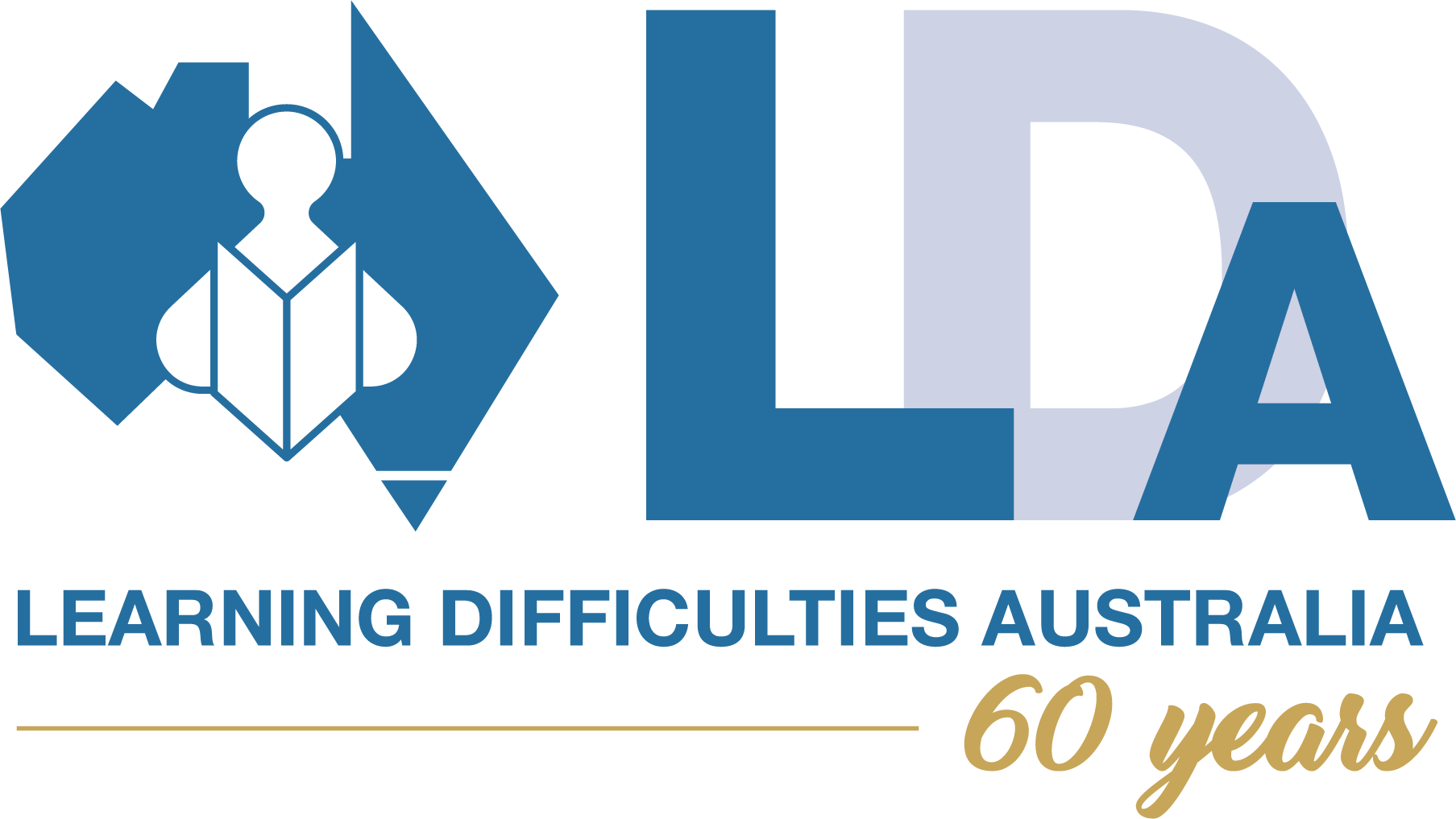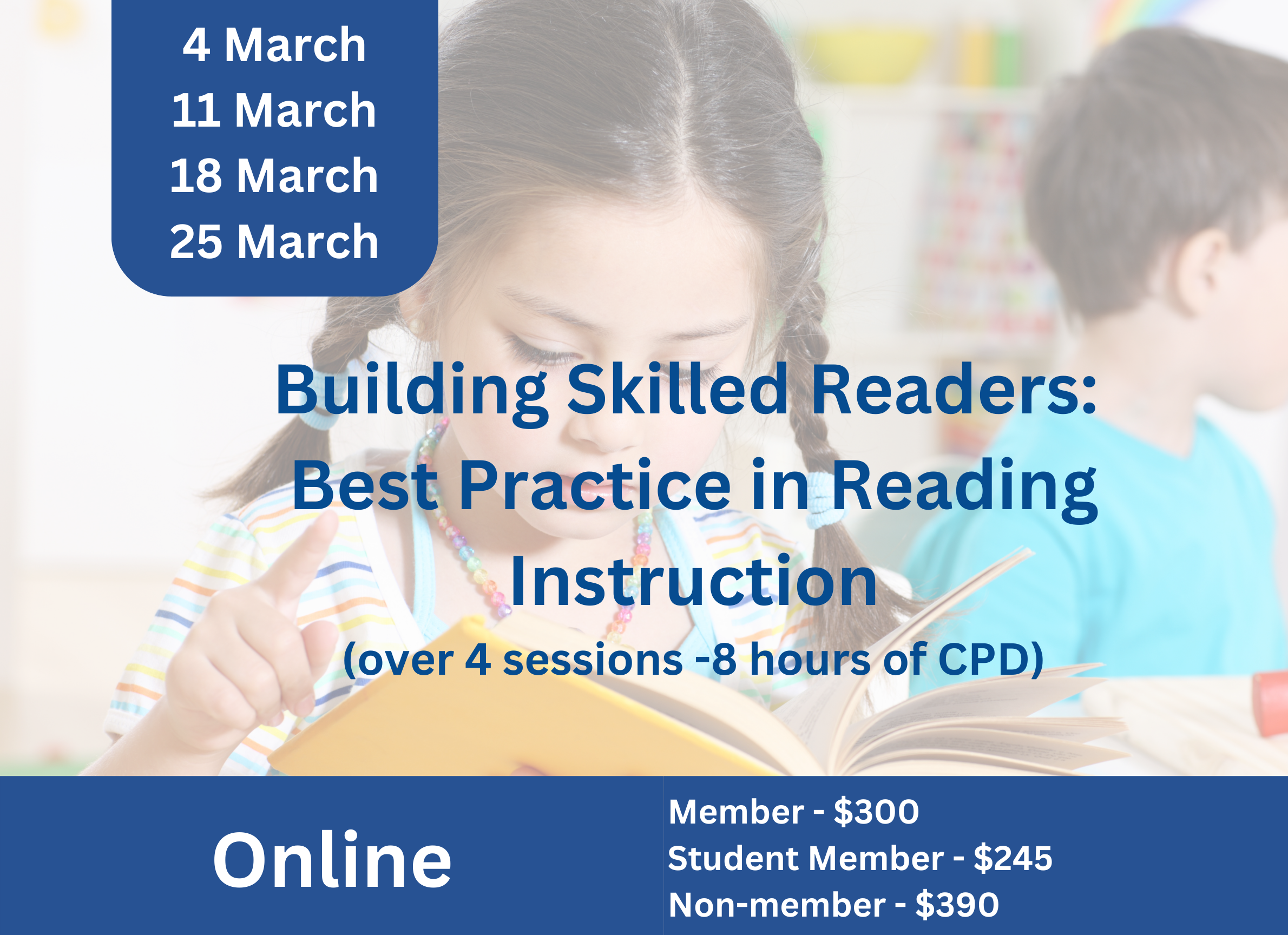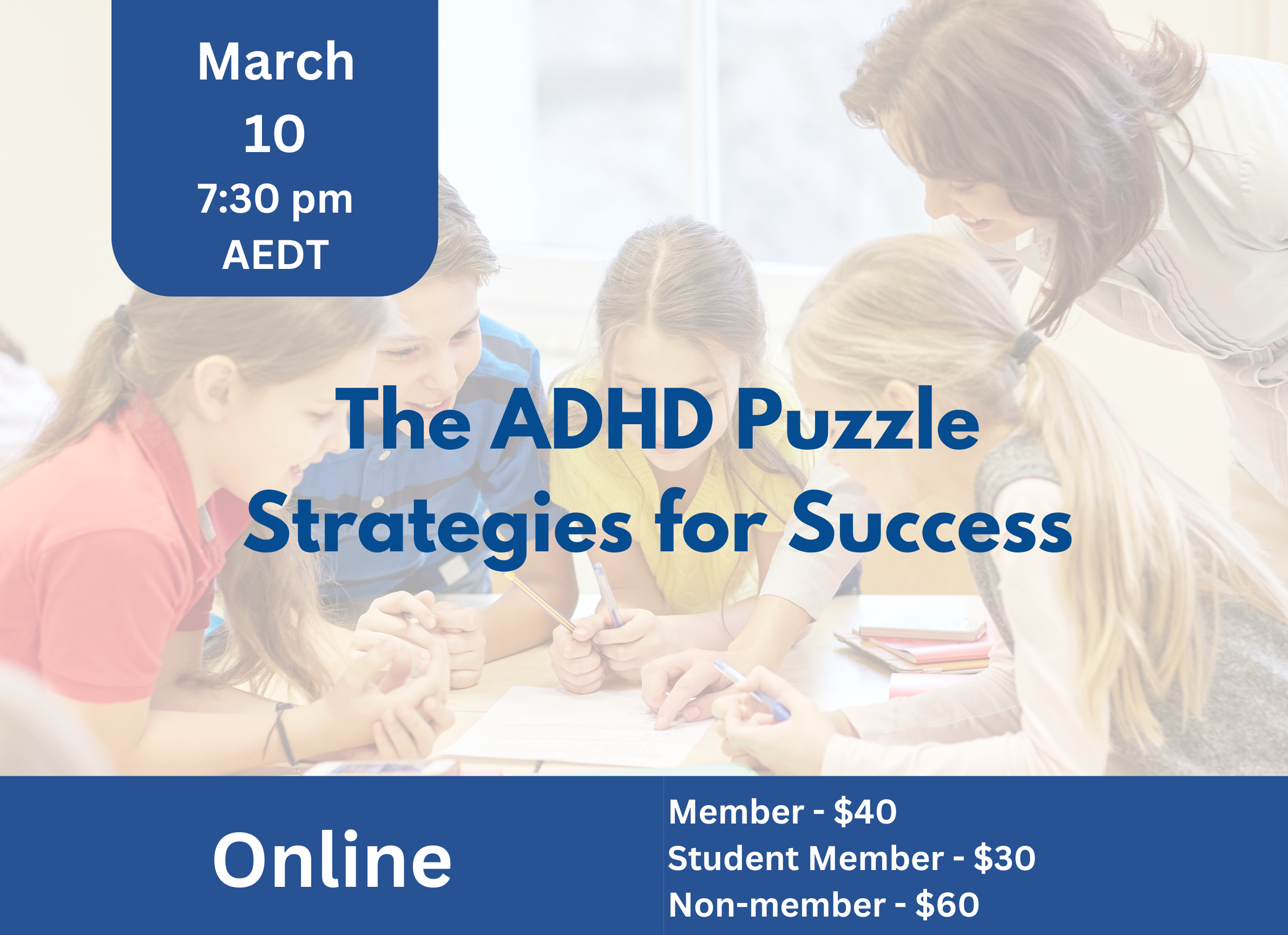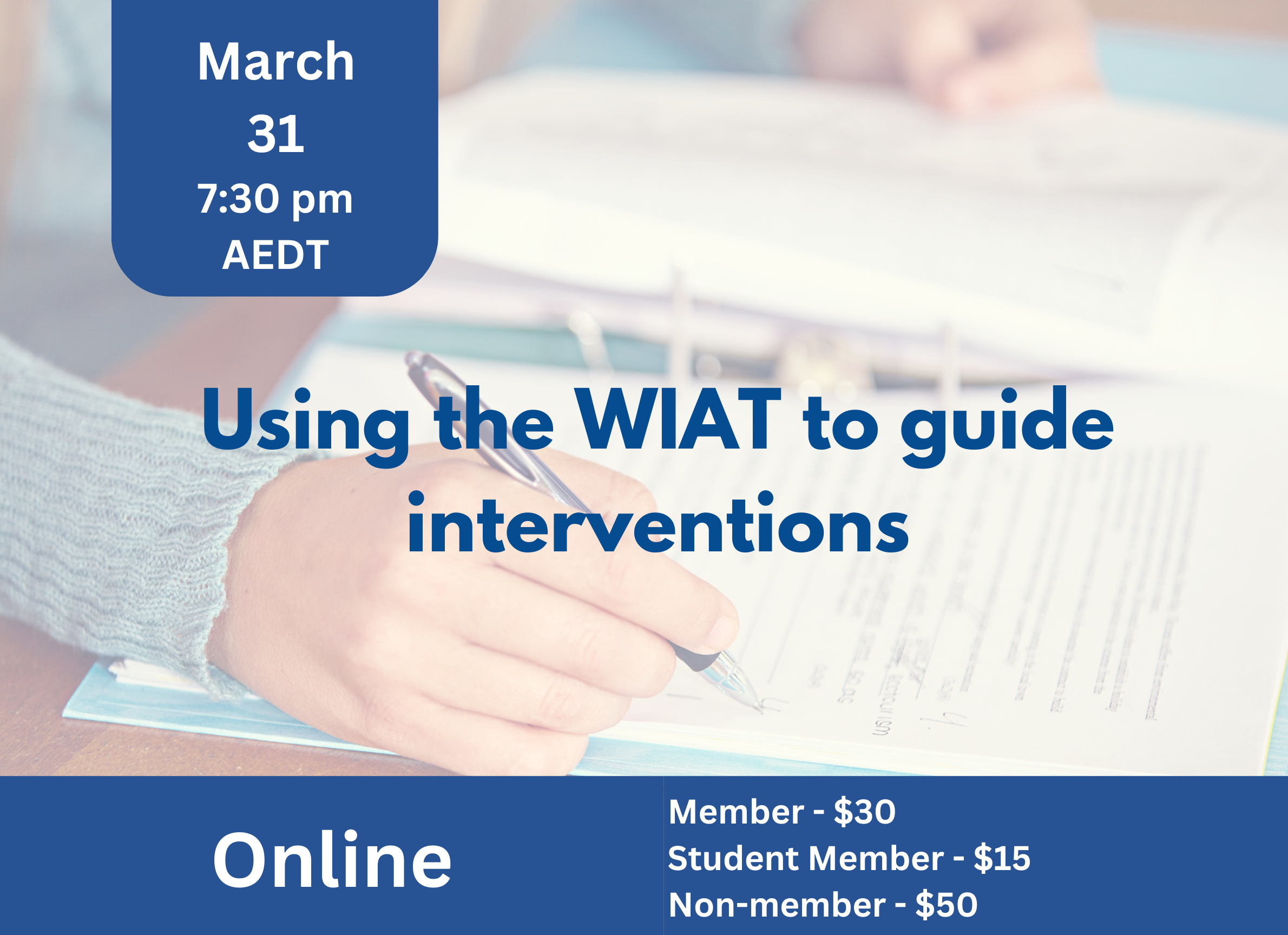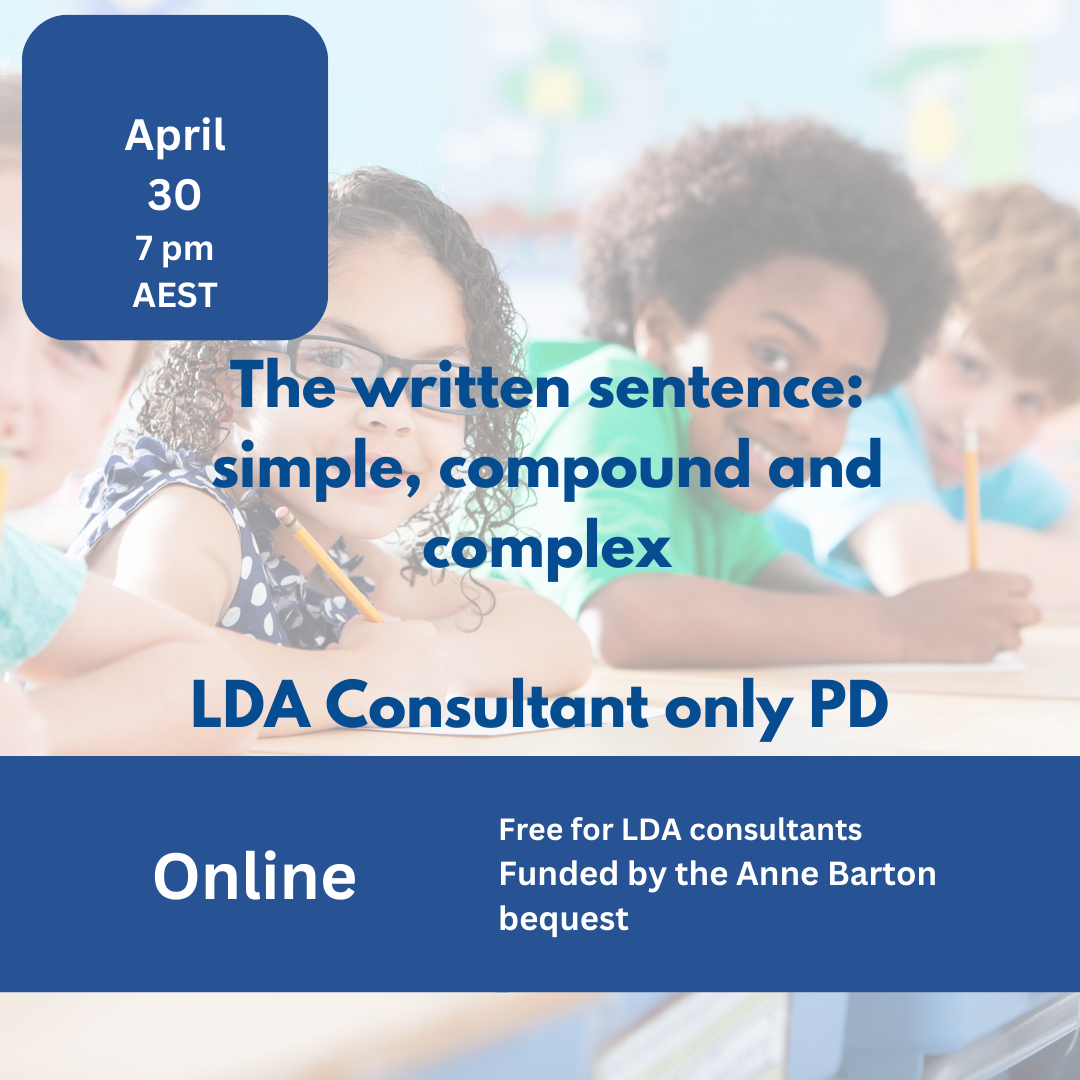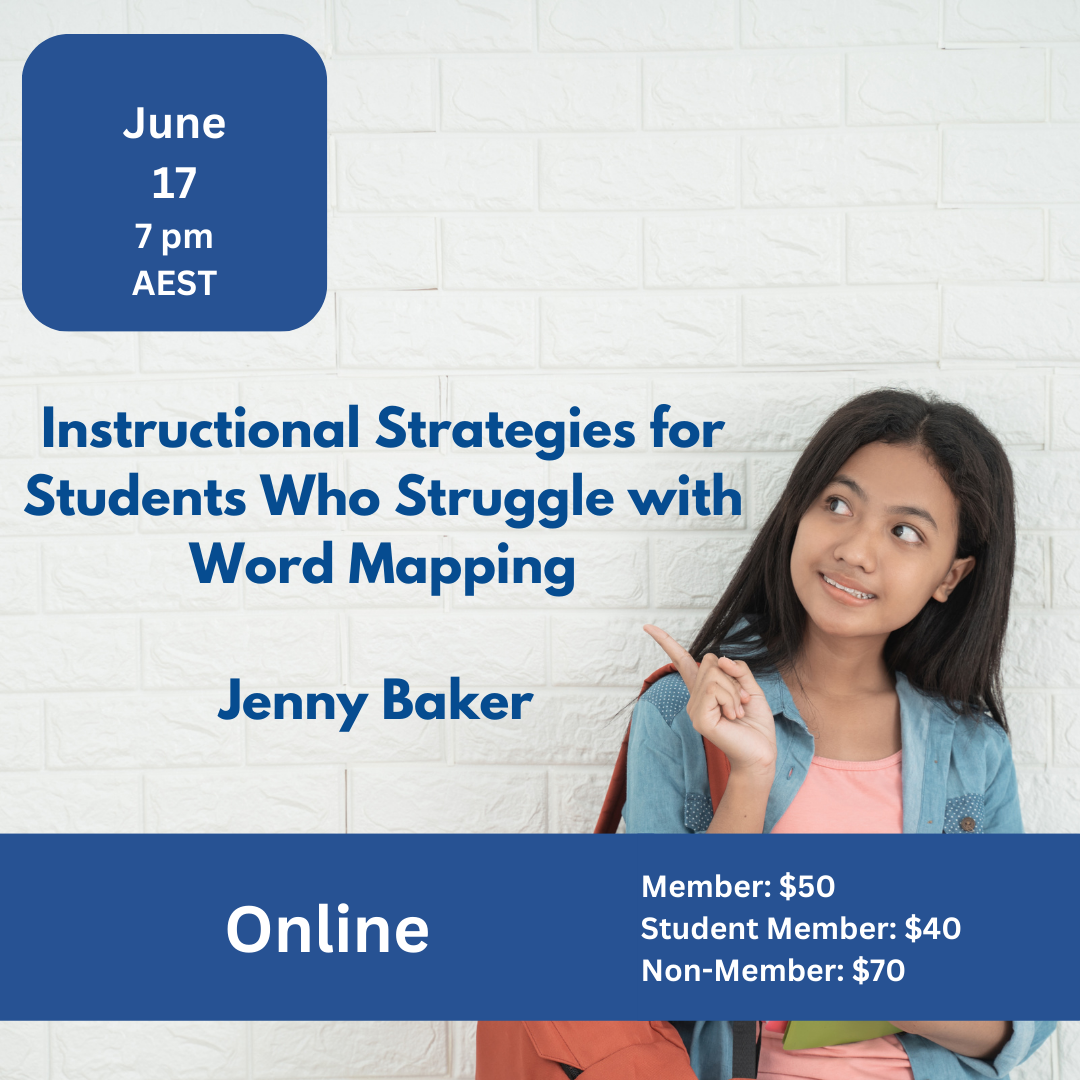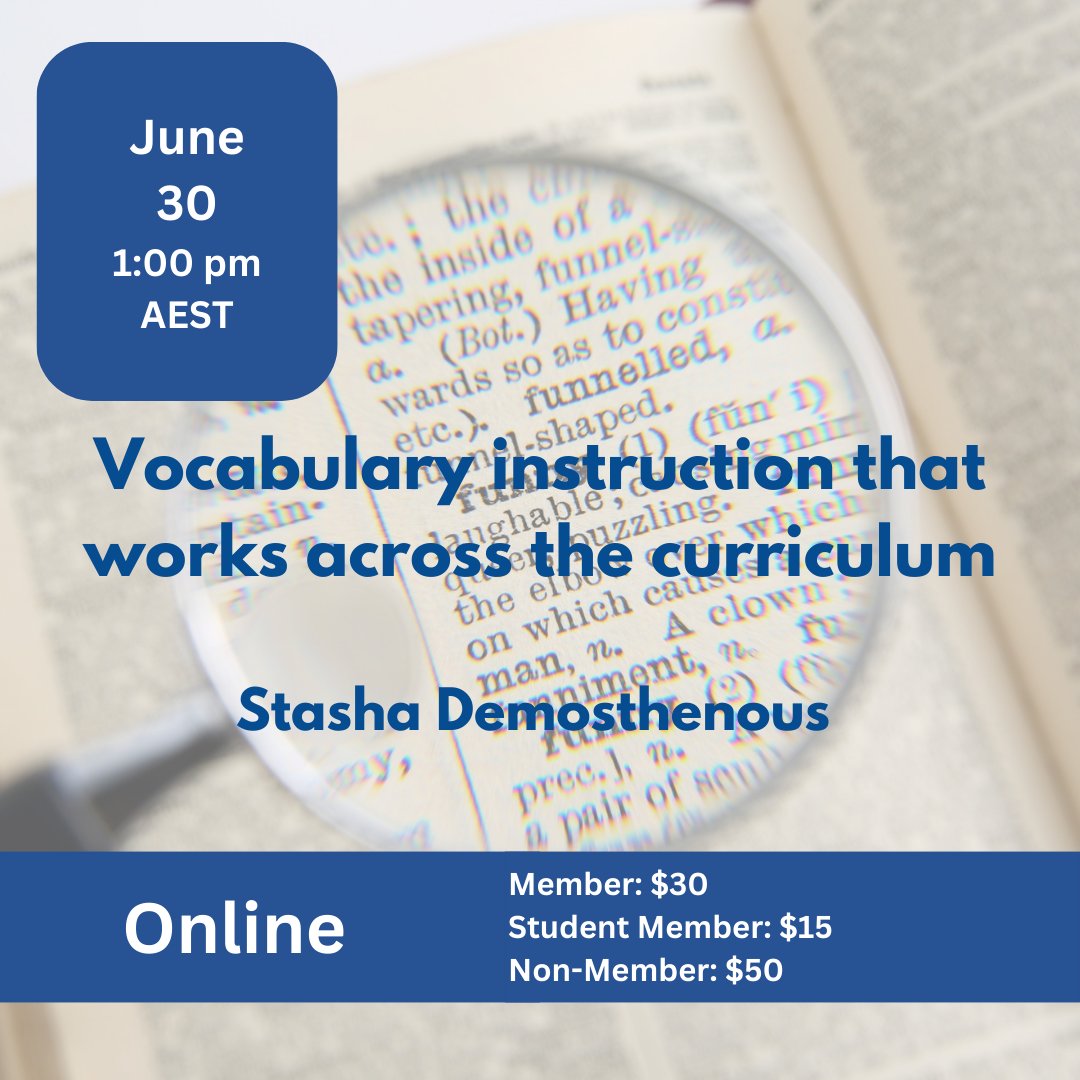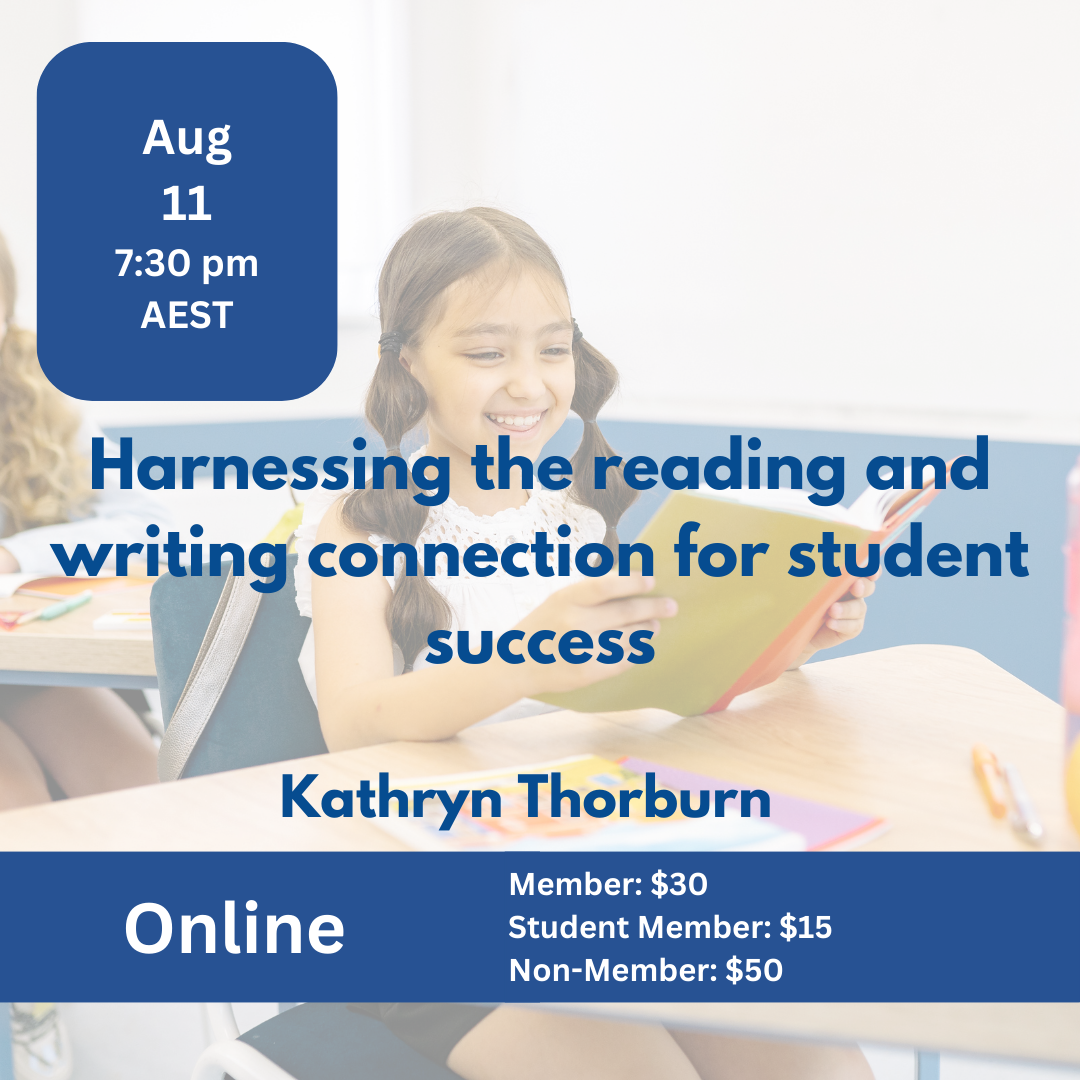This course will be based on Scarborough's Reading Rope (Scarborough, 2001) and include presentations on supporting both primary and...
This course will be based on Scarborough's Reading Rope (Scarborough, 2001) and include presentations on supporting both primary and secondary students to become skilled readers, focusing on both word recognition and reading comprehension. This course will be run over...
This course will be based on Scarborough's Reading Rope (Scarborough, 2001) and include presentations on supporting both primary and secondary students to become skilled readers, focusing on both word recognition and reading comprehension. This course will be run over four sessions on the following dates:
Tuesday 4th March 12pm - 2pm AEDT (Melbourne time)
Tuesday 11th March 12pm - 2pm AEDT
Tuesday 18th March 12pm - 2pm AEDT
Tuesday 25th March 12pm - 2pm AEDT
** Recordings will be available for one month after the event **
Cost:
LDA Member: $300
LDA Student Member - $245
Non-Member - $390
Bookings
The live course has concluded but the recording is available on our on-demand learning shop.
Presentations
Evidence-based foundations of the science of reading - Dr Jennifer Buckingham
The theories and research that underpin the evidence base known as the science of reading have been tested and validated in numerous studies over many decades. In this opening presentation, Jennifer will provide an overview of the fundamental theoretical frameworks for the components and development of reading to set the scene for the subsequent presentations that connect them to evidence-based practice.
Mastering Decoding and Word Recognition Skills - Lisa Bellman Ansell & Sarah Collins
Evidence-based reading instruction using decodable text is explicit and engaging, building students decoding, reading fluency and comprehension skills. As part of our exploration into decoding, we will look at the process of how we learn to read, what makes a good reader, how to choose the right decodable books for your students and how to plan an effective small group reading session.
Reducing the reading gap in a secondary setting - Stasha Demosthenous & Christine D'Arcy
A multi-tiered system of support (MTSS) to improve reading comprehension in a secondary setting will be outlined in a session that will be relevant for upper primary and secondary school leaders and teachers. Participants will learn how teachers and leaders across all year levels and learning areas at Parafield Gardens High School have been implementing and measuring the impact of a Tier 1 explicit vocabulary instructional routine (VIR) that incorporates a focus on subject-specific word morphology before taking a deep dive into the school’s Tier 2/3 Reading Acceleration Program (RAP) for Year 7 and 8 students with word reading (decoding) ages at or below 10 years. Participants will be shown lots of examples of what reading intervention in a secondary setting can look like and the positive outcomes that can be achieved for older struggling readers
Supporting struggling older readers with multicomponent literacy interventions - Melinda de Haan
Multicomponent literacy interventions aim to bridge the knowledge gap between students with reading difficulties and their peers, empowering students to engage in their classroom work. This presentation will explore how to plan multicomponent literacy interventions for older struggling readers (upper primary and secondary).
Assessing Reading Progress: Standardised, Diagnostic, and Formative Tools for Success - Jacinta Conway
This session will explore how reading assessments can be effectively integrated within a Multi-Tiered System of Support (MTSS) and Response to Intervention (RTI) framework to enhance literacy outcomes.
Participants will learn how assessments function across all tiers of instruction, from universal screeners that identify students at risk, to standardised and diagnostic tools that guide targeted interventions for Tier 2 and Tier 3 students. The session will also address the role of formative assessments in monitoring progress and shaping classroom instruction in Tier 1 settings.
The presentation will highlight practical resources, including free assessment tools for decoding skills, alongside formal assessments like the WIAT. Guidance will be provided on how schools can create an effective assessment schedule that aligns with literacy goals and supports data-driven decision-making.
Real-world case studies will demonstrate how to interpret and apply assessment data to inform teaching, design interventions, and track student growth. Attendees will leave equipped with actionable strategies to implement robust reading assessment practices within their schools, ultimately supporting the development of skilled and confident readers.
Language Comprehension: A pathway to proficient reading - Nancy Hennessy
The Reading Rope, a visual metaphor for skilled reading, provides an explanation of the complexity and interwoven nature of reading acquisition. It offers a powerful picture of the two major parts of the rope, word recognition and language comprehension. We know that “skilled reading requires the fluent execution & coordination of word recognition & text comprehension (Scarborough, 2002).” The science is clear- language comprehension is foundational to constructing meaning of text. This session will focus on the upper strands of the reading rope including vocabulary, language structures, text & background knowledge as well as inference. The informed educator understands the nature of each, their individual, as well as collective, contributions, to reading comprehension. But, most importantly, they recognize the implications & connections to the design & delivery of effective comprehension instruction.
From listening to understanding: The keys to comprehending language - Laura Glisson
In this session, Laura will present on evidence-based and evidence-informed oral language instruction to support the development of reading. With a particular focus on vocabulary, background knowledge and sentence comprehension, Laura will bring a range of practical strategies for immediate implementation in the classroom that will support all learners, including those with language disorder.
Speakers
Dr Jennifer Buckingham
Dr Jennifer Buckingham OAM is the Executive Director of the Centre for Education Statistics and Evaluation (CESE) in the NSW Department of Education. Prior to that, she was Director of Strategy and Senior Research Fellow at MultiLit, and Senior Research Fellow at The Centre for Independent Studies. Jennifer was the founder of the Five from Five project. She is co-editor and co-author of the textbook Effective Instruction in Reading and Spelling (MRU Press, 2023) which is used in teacher education courses in universities in Australia, New Zealand, Ireland and Scotland, and An investigation of literacy instruction and policy in the United Kingdom and Ireland (Churchill Trust Australia, 2024). Jennifer is a board member of the Australian Institute for Teaching and School Leadership (AITSL), a Fellow of the Royal Society of New South Wales, and an Adjunct Associate Professor at La Trobe University.
Lisa Bellman Ansell
Lisa is a teacher, reading intervention specialist and national trainer for the...
